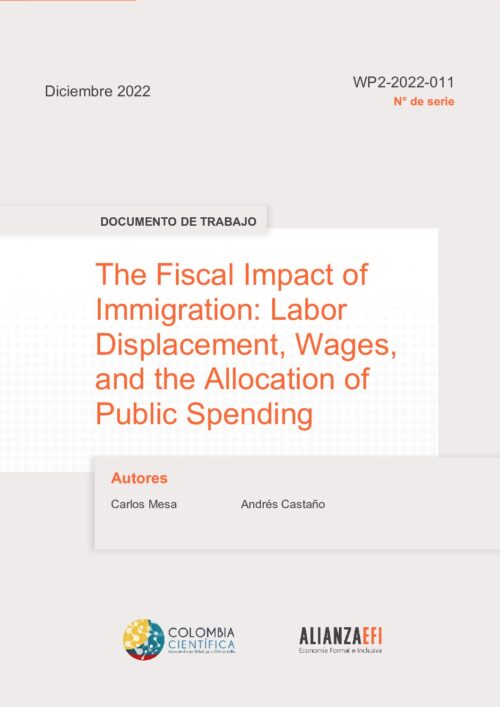We reexamine the effect of immigration on public finances by accounting for second-order effects. We exploit exogenous variation in immigration across Colombian metropolitan areas between 2013 and 2018,resulting from the large increase in Venezuelan immigrants,and instrument immigrants’ residential location using pre-existing settlement patterns and the distance between origin-destination flows. We find that immigration did not reduce natives’ average fiscal contributions. Exploring the mechanisms in place, we document that immigration had no effect on employment, average wages in the upper half of the wage distribution, or hours worked that would have explained changes in labor-driven tax contributions. In addition, immigration did not trigger a decline in property values,andwe find no evidence of changes in the composition of local public spending or costs being distributed among a larger population. This suggeststhat the composition of public expenditures is biased towards services that are rival in consumption and thus increase with population. Results in this paper indicate that, even when finding evidence of labor displacement or negative factor prices, immigration does not necessarily reduce natives’average tax contributions.
Autores:
- Andrés Castaño
- Carlos Mesa
Palabras clave:
- Employment
- Immigration
- Property values
- Public finances
- Public goods
- Wages
Categorías:
- Proyecto 2
- Documentos de trabajo
